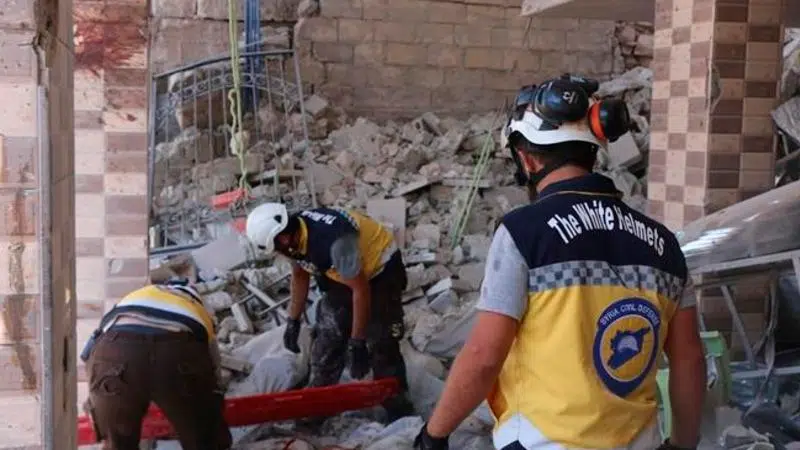
Syrian activists say airstrikes kill 27 in rebel-held town
BEIRUT — Multiple airstrikes hit a busy market in a rebel-controlled town in northwestern Syria on Monday, killing at least 27 people and turning several buildings into piles of rubble, according to opposition activists and a war monitor. Shortly afterward, state media said rebels shelled a government-held village, killing seven.
The high death toll marked a sharp increase in the escalation between the two sides amid intense fighting. Government troops, backed by Russian air cover, have been trying since April to push their way into the enclave in the northwestern corner of Syria, near the Turkish border.
Dominated by al-Qaida-linked militants and other jihadi groups, Idlib province and northern parts of the nearby Hama region is the last major rebel stronghold in the country outside the control of Syrian President Bashar Assad.
Despite the heavy bombardment, Assad’s forces have been unable to make any significant advances. Militant groups have hit back hard, killing an average of more than a dozen soldiers and allied militiamen per day in recent weeks.


